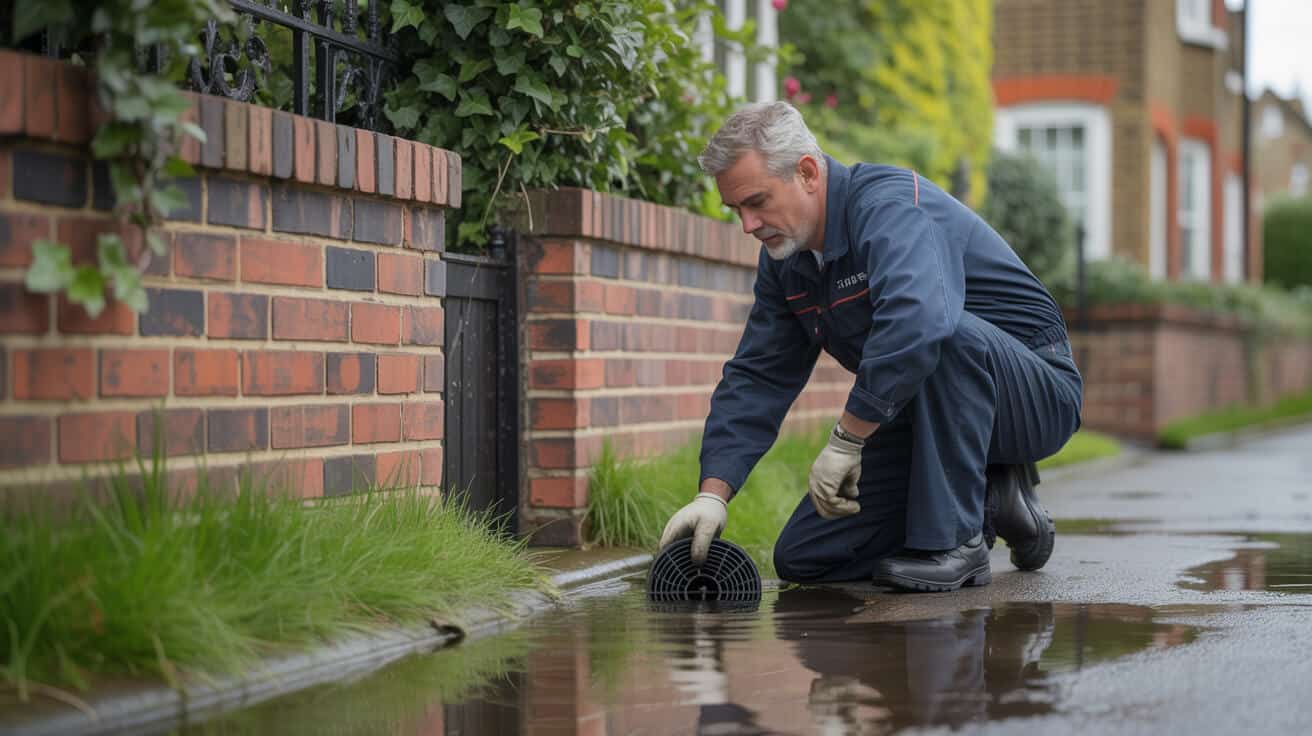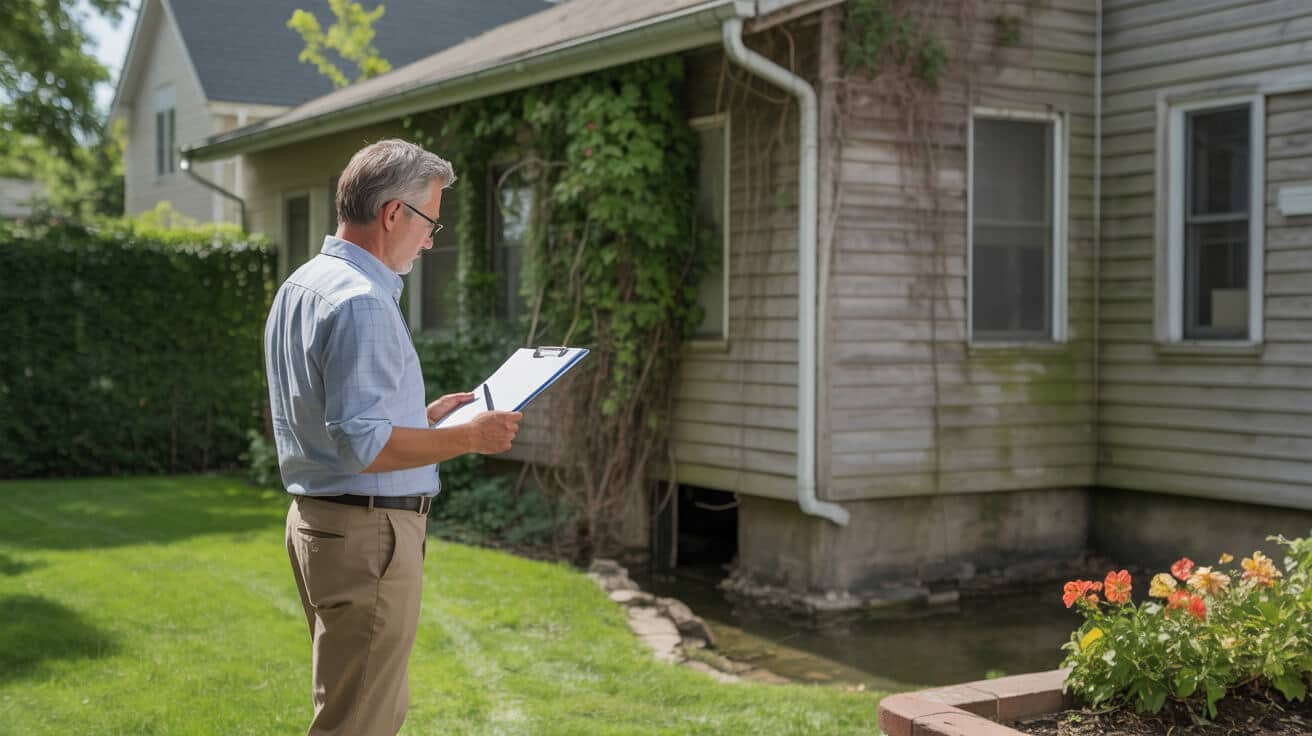 2025 Renters’ Rights Bill Faster Plumbing Repair Timelines
2025 Renters’ Rights Bill Faster Plumbing Repair Timelines
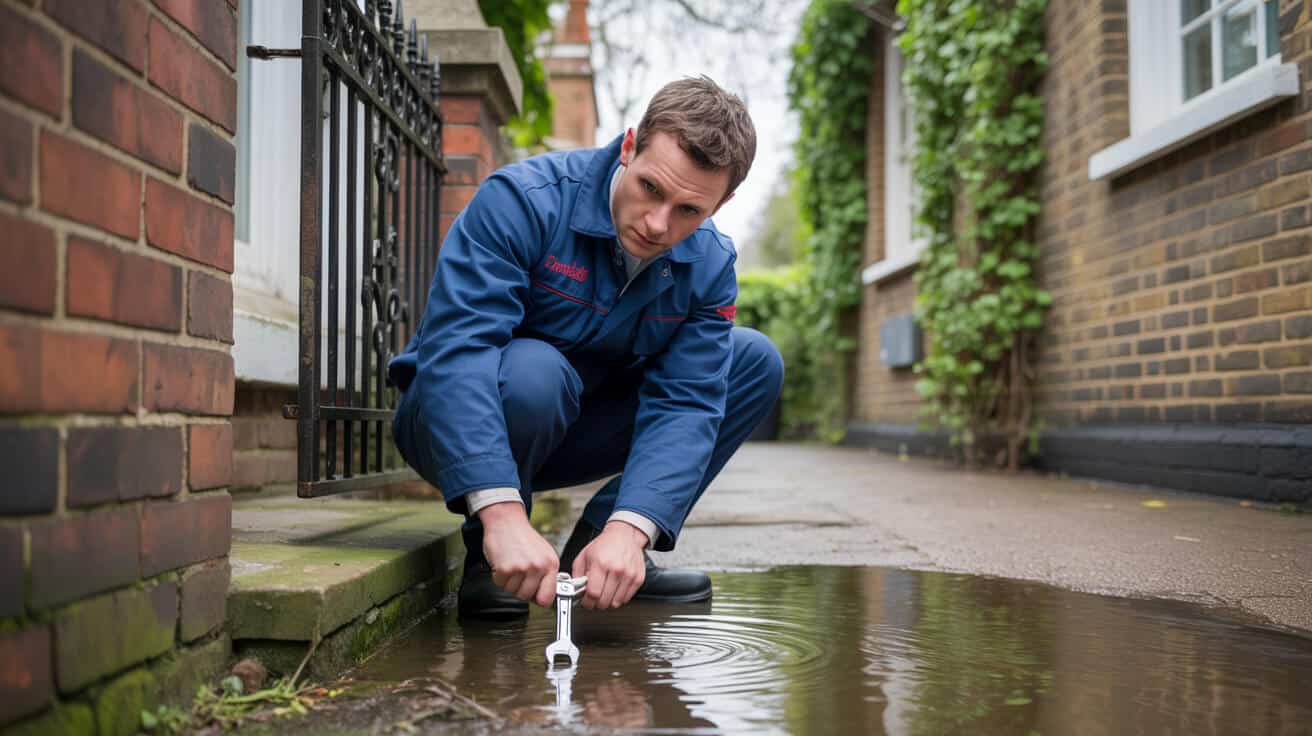
Why Plumbing Repair Timelines Are Now Law—And What It Means for Your Property and Reputation
There’s no more blurred line between “routine” and “urgent” when it comes to your rental’s plumbing. England’s 2025 Renters’ Rights Bill and the reach of Awaab’s Law have transformed repair timelines from informal agreements into firm legal obligations. You’re working to a statutory clock now, with penalties for every hour you run over. Where you once had breathing room, you’re now competing against council-mandated deadlines, tenant escalation rights, and digital compliance trails.
Procrastination used to cost goodwill; today, it can cost you money, your licence, or your name on a registrar of non-compliant landlords.
Gone is the era when “we’ll get to it this week” would satisfy a leaking fixture, and “my plumber’s diary is full” might buy you another few days. Tenants with a WhatsApp message or email timestamp can activate a 24-hour emergency timeline. Landlords, letting agents, and managing agents now live in a world where failure to act—on even apparently minor plumbing issues—invites direct council enforcement, on-the-spot fines, rent repayment orders, and reputational damage that echoes online and with lenders.
What’s changed most is accountability. Today, evidence trumps intent; being “hands-on” or “responsive” is irrelevant if you can’t show a logbook. The performance bar isn’t just a working repair, but a visible, well-documented workflow: instant acknowledgment, digital job sheets, dated photographs, and certification. “I never got the report” is no longer a defence.
By setting up legally compliant repair timelines as your new “minimum viable process,” you’re not only protecting your assets—you’re showcasing to insurers, regulators, and tenants that your operation is fit for the present and built to last.
What Counts as a Plumbing Emergency Now? How the 24-Hour Rule Really Works

A blocked toilet in a single-bath flat, water pouring through a ceiling, or an overflowing soil stack was always an inconvenience—now, it’s a legal emergency with no leeway. The 2025 Renters’ Rights Bill provides exact definitions for emergencies, binding everyone in the rental chain to a 24-hour maximum response, from landlord to block manager.
The triggering moment is the tenant’s first message or photo—the law counts from then, not from when you see it.
A “plumbing emergency” now covers:
- Active water leaks, burst pipes, or flooding
- Any total loss of mains hot or cold water supply
- blocked drains or exposed sewage
- Complete failure of the only toilet in a property
- Contaminated supply, or any plumbing failure that disables basic sanitation or hygiene
(Shelter England reaffirms these).
What about “urgent” but not critical faults? Anything that could escalate to a health risk or property damage if left more than a few days—slow leaks, repeated boiler dropping pressure, or foul water working its way up—gets a 3–7 day response window.
Delayed? There are no more soft landings. Tenants have the right to escalate to the council upon deadline expiry, presenting timestamped proof. The council isn’t just an umpire—they can issue repair orders, impose direct fines, or legally authorise tenants to arrange their own fix and deduct rent.
If you’re still relying on “tenancy know-how” or handshake agreements, this law shreds those shields. Digital documentation and airtight workflows aren’t optional—they’re your new legal defence.
The Triage Trap: Why Misclassifying Your Plumbing Calls Is the Fastest Route to a Fine
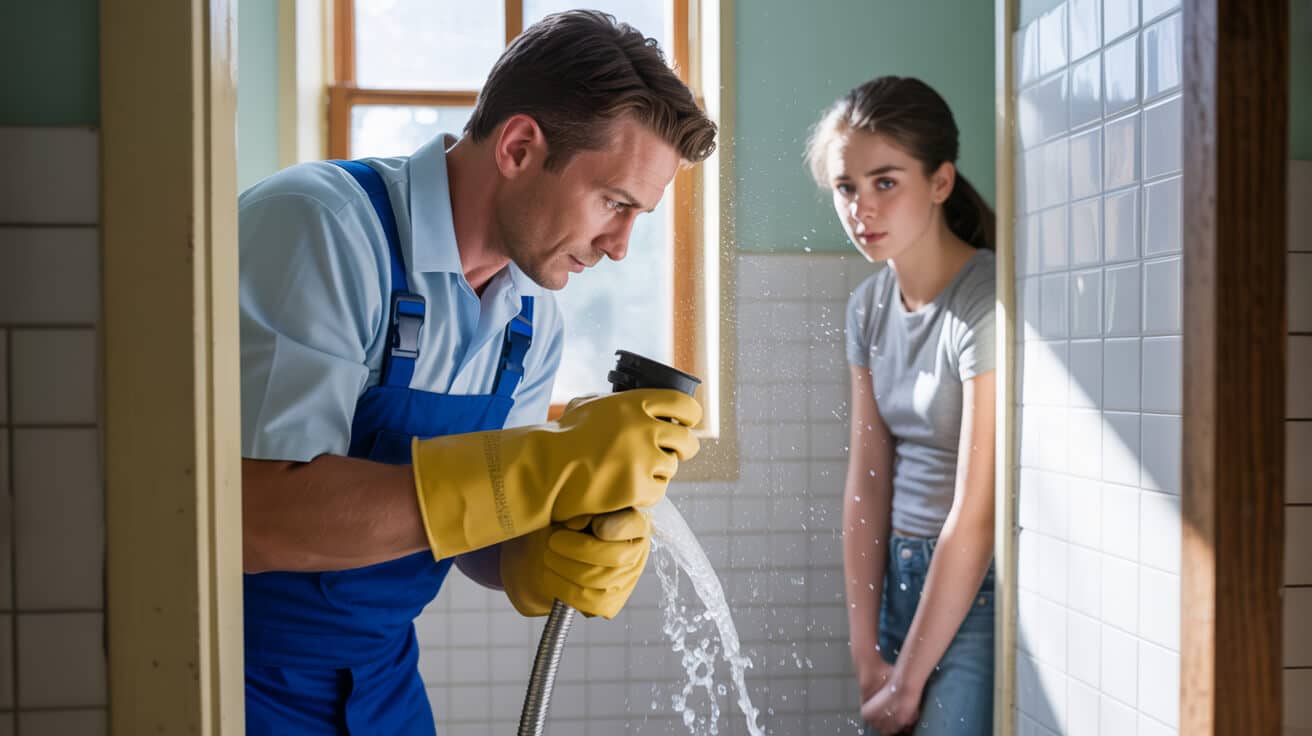
You’re not just being watched for your reaction speed—you’re monitored for your accuracy. The new legislation requires all plumbing issues to be tagged as emergency, urgent, or routine, with a statutory response window for each. If you delay, miscategorise a job, or fail to log the workflow? You’ve moved to the front of the council’s audit list.
- Emergency (24hr): burst pipes, total water outage, blocked sole toilet, indoor leaks, exposed sewage.
- Urgent (3–7 days): Ongoing leaks, persistent blockages, repeated heating dropouts, rising damp from slow water escape.
- Routine (28 days): Dripping tap when alternatives exist, minor water hammer, slow drain where property remains habitable.
Missing a deadline is a breach, mislabelling a fault is a breach, and poor documentation is a breach. Any one is enough for a penalty.
Get this wrong and the cost isn’t just the repairs. A tenant with a phone creates an indisputable timeline; a council with a compliance portal can strike, regardless of “effort” or “good faith.” You must document job type, triage timing, assignment, and action.
Your most valuable asset becomes fast, systematic triage:
- Log every repair with a category and priority
- Link photographs or video to support urgency
- Allocate clear deadlines that align with the law
- Use platforms or digital logs that show activity and attempts (not just “job is pending”)
If you’re not equipped to prove your system, you risk fines, rent deduction, and the loss of that crucial window to resolve issues internally before tenant escalation. Everyone’s watching now.
Digital Timelines: The Moment a Tenant’s Message Launches Your Race Against the Compliance Clock
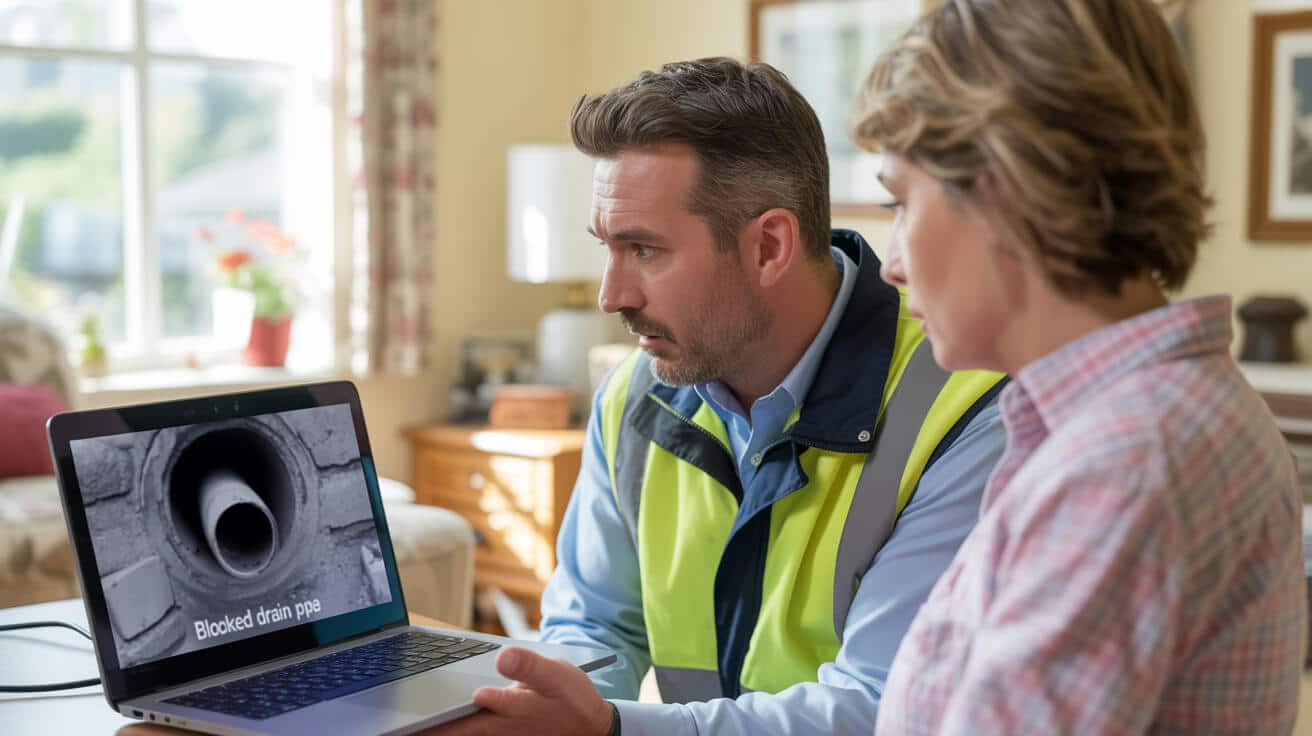
From the first text, photo, or call—the compliance clock is running. Your awareness isn’t the trigger; the tenant’s communication is. If it’s sent through a portal, app, or email, the evidence is live—even if you were off-shift or away.
If there’s a timestamp on a message, you’re accountable for the repair window from that second onward.
For renters: Always send reports in writing and attach photos where practical. Seek acknowledgment—ideally automated and instant, never longer than same-day. File receipts, logs, or screenshots. Even WhatsApp or text counts as notification.
For landlords and property professionals:
- Every report must log into a digital case file (timestamped)
- Acknowledge receipt fast—use auto-responses if you’ve got out-of-hours gaps
- Triage within two hours whenever possible, or by day’s end for reports after 4pm
- Each category should auto-assign a due-date and flag for escalation if missed
- Record every interaction (photos, logs, emails) centrally
This real-time, digital approach doesn’t just reduce missed deadlines—it hoses down disputes, gives clarity in audits, and reassures tenants you’re playing by the new rules.
Your system is your safety net. If you’re still using spreadsheets or paper diaries, today’s law is an open trapdoor.
Financial and Reputational Consequences: Missing Plumbing Deadlines Hits More Than Your Wallet
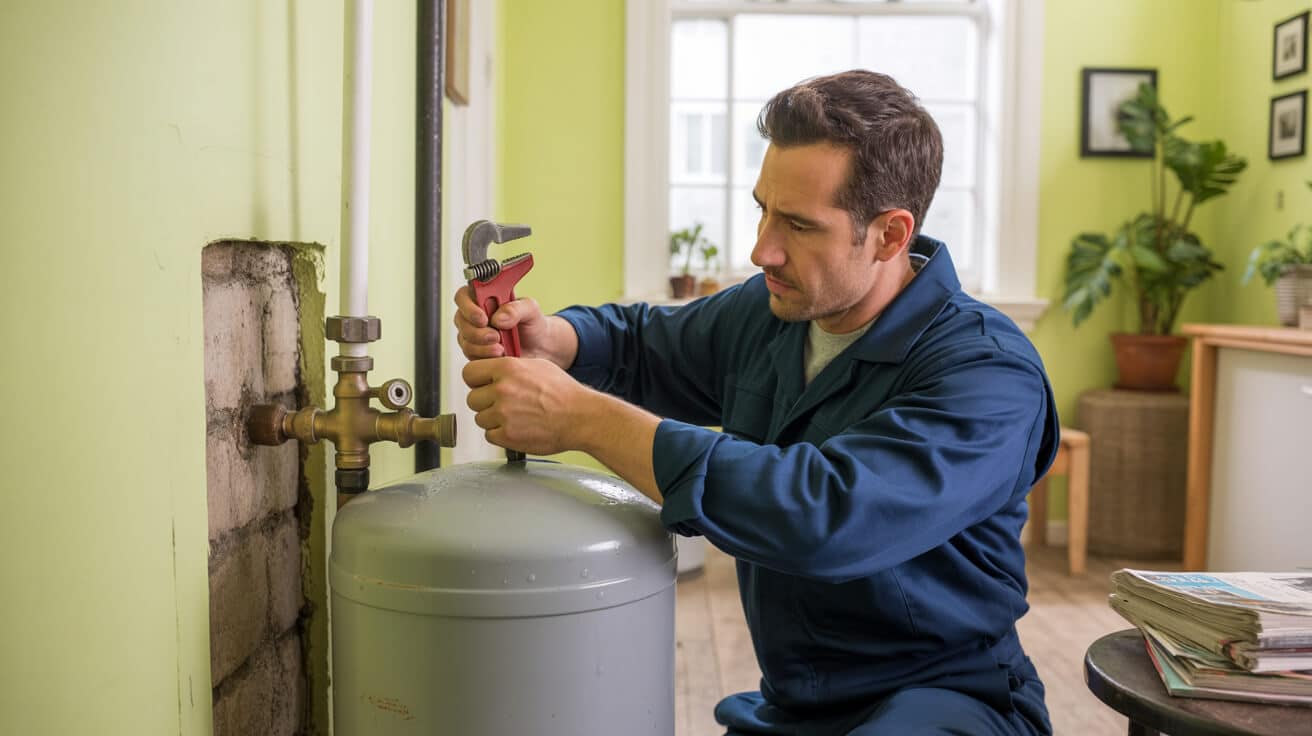
The Renters’ Rights Bill brings firepower to tenant complaints. There’s no “should have tried harder” in the new scheme—documentation, not intention, is king. Tenant uploads a photo and timestamp, the council sees a breach, and fines or rent repayment orders are the default, not the exception.
- Council repair notices are now both public and enforceable
- Fines can hit on the first breach—no “slap on the wrist” warning system
- Tenants can directly arrange repairs after expiry, deducting from their rent
- Persistent breaches result in entries on public registers—there’s no scrubbing your record
Why does this matter for asset and reputation management?
Lenders and insurers already review your compliance record. Multiple flagged breaches don’t just hit your cash-flow—they ripple through your ability to secure mortgages, refinance, or insure at competitive rates.
If you rely on external contractors, ensure contracts specify 24hr/7-day/28-day response windows, demand photographic evidence, and enforce audit logging. The “waiting on parts” excuse is now toxic—unacceptable without full evidence chain.
You’re not just protecting your property—you’re fighting for your future value and market standing.
Moving Beyond Faults: Why “Maintenance-First” Beats “Firefighting” Under the 2025 Decent Homes Standard
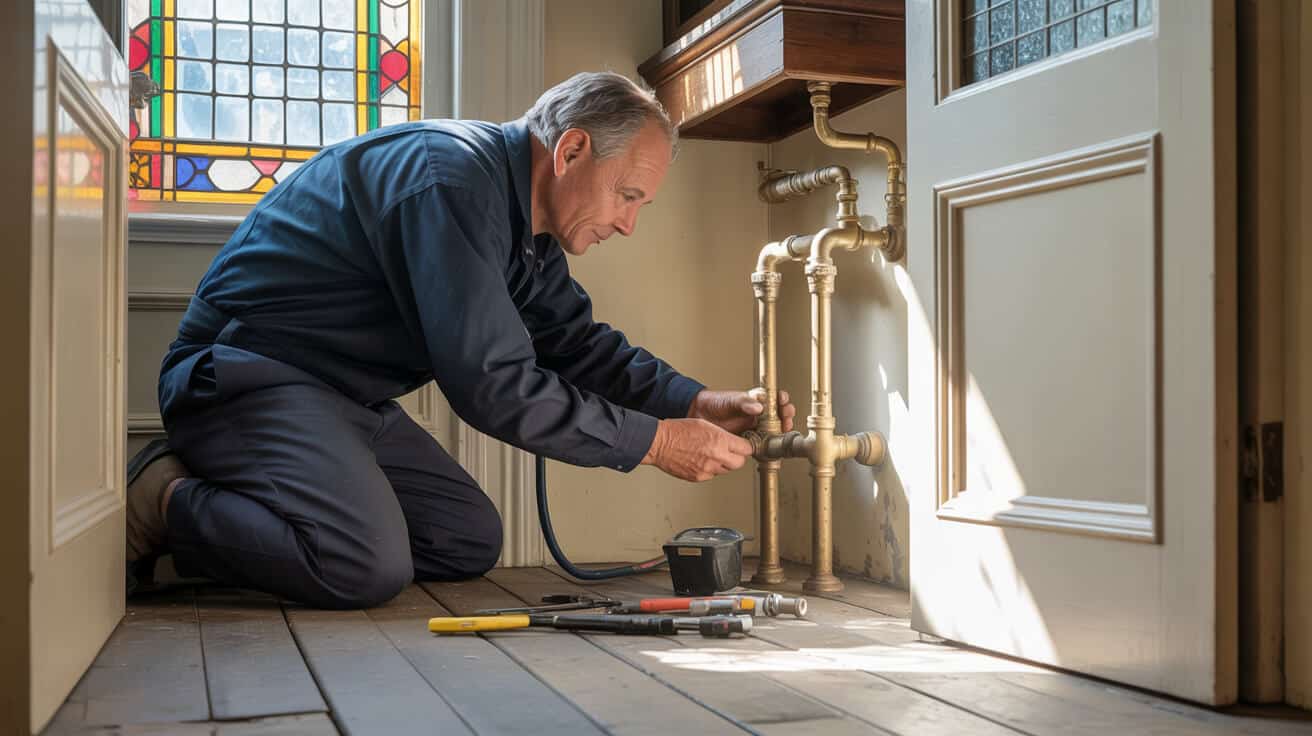
The new standard for “decent homes” means your repair role is proactive, not reactive. It’s not enough to “fix when it breaks.” You’re now responsible for preventing unsafe or non-compliant systems, keeping water hygiene high, and documenting every step to prove it.
- No leeway for visible or hidden leaks, slow escalation of damp, or any water hygiene issue
- Only WRAS-approved (Water Regulations Advisory Scheme) parts for all works
- Maintenance logs, test results, and receipts must be immediately accessible for any audit
- Non-compliant work—outdated, DIY, or quick-fix—must be pre-emptively upgraded
You’ll want to:
- Schedule biannual property health checks and fix snags before they trip compliance
- Book annual full-system drain downs, chemical inhibitor doses for heating, and G3-certified cylinder inspections
- Keep four years of Legionella test logs and asset service sheets
- Regularly upgrade vulnerable systems—instal modern isolation valves, replace old washers, update thermostat controls, ensure insulation is sound
By transforming from “fault-fixer” to “system maintainer,” you futureproof not only each property, but your business credibility and financial outlook.
The law will always find the landlord with a half-filled logbook. It rewards those with evidence, not explanations.
Step-By-Step: How to Audit-Proof Your Plumbing Workflow and Never Miss a Compliance Beat
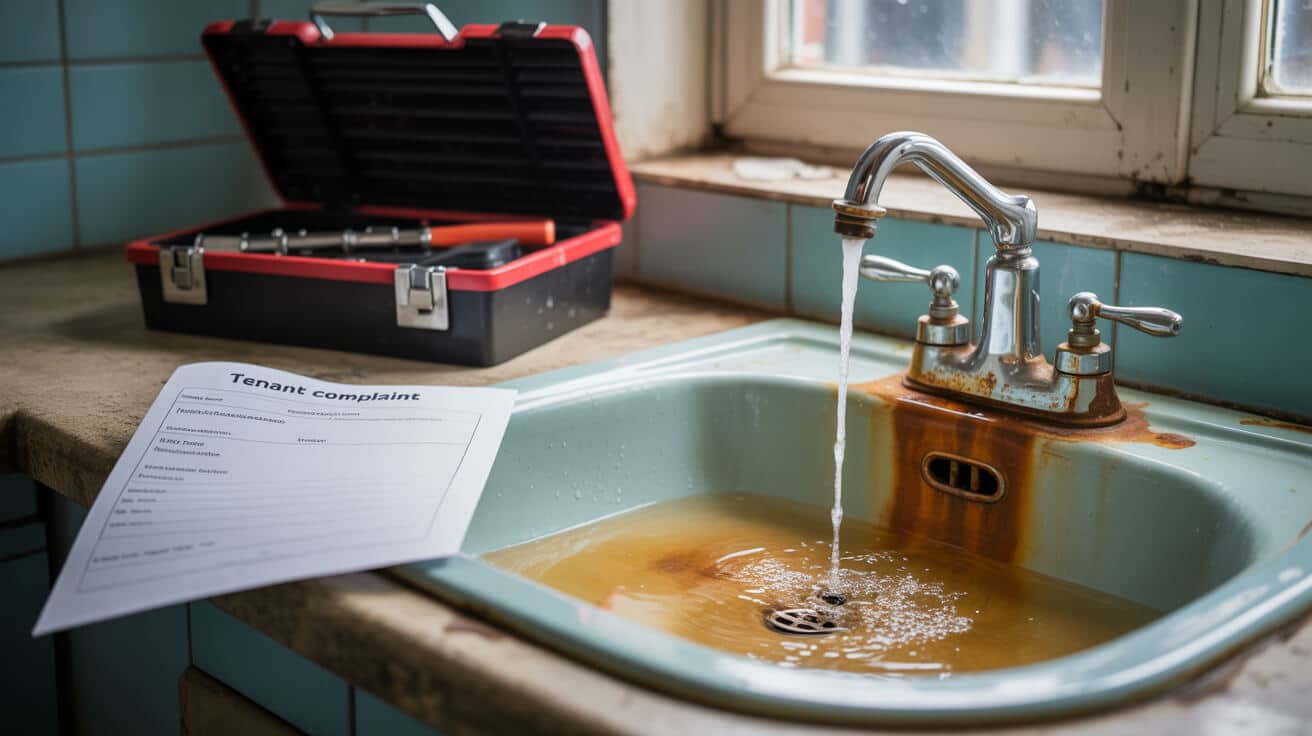
Council audits and tenant complaints aren’t rare events—they’re expected checks on your day-to-day. The solution? Turn every repair into a transparent, bulletproof compliance suite.
1. Launch a Digital Tracker for Each Repair
Create a job ID for every reported issue. This lets you trace everything, from who triaged the call to when the engineer arrived and completed the fix.
2. Urgency Categorisation and Automation
Assign a category (emergency, urgent, routine) and set due-dates. Systems should auto-alert the team as deadlines approach.
3. Only Use Accredited Engineers
WRAS, G3, or trade-appropriate accredited professionals must log every visit, with photo before/after proof.
4. Paper-Trail Every Fix
All work should be supported by:
- Time-stamped logs
- Job sheet with full part numbers and methods
- Signed certificates (where needed)
- Engineer and client sign-off
5. Communicate With Tenants
Always confirm the fix, share operation/aftercare instructions, and keep records of all handover steps.
6. Standardise Across Asset Types
Whether it’s an HMO, a single let, or a commercial block, every repair follows the same documentation protocol. This builds resilience into your audit portfolio and reassures both tenants and lenders.
A single missing log—or late response—destroys your whole audit defence. Don’t just hope you’ll do it right: automate your compliance.
Why Choosing Plumbers 4U Futureproofs Your Repairs, Reputation, and Audit Defence
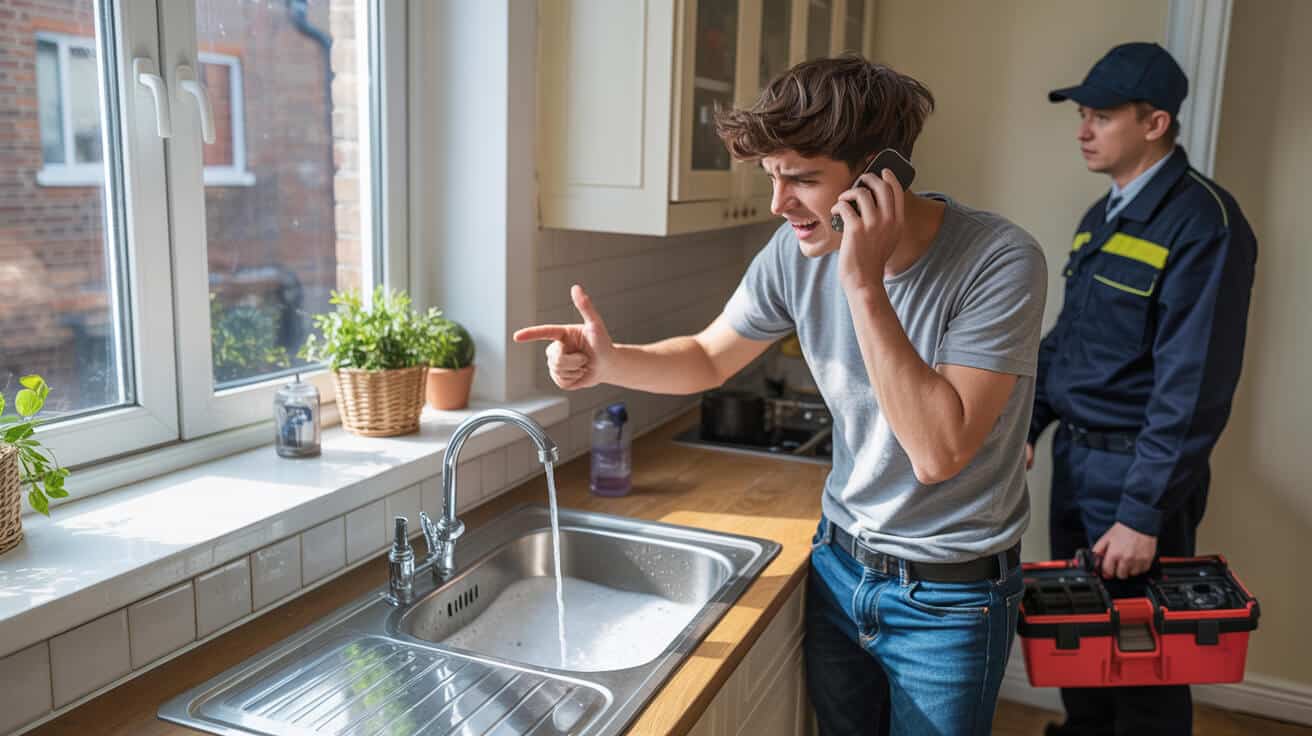
When regulations get tougher, only the most transparent, well-documented, and accredited service partners keep up. That’s why landlords, agents, and property managers working with Plumbers 4U get a visible edge.
How Plumbers 4U protects your interests:
- All engineers carry WRAS and G3 credentials—proof provided in your digital repair log for every job
- Each emergency and routine repair is time-stamped, photo-documented, and logged, so there’s never debate over compliance
- Manufacturer-approved materials guarantee instal quality
- Tenants receive aftercare (how to bleed radiators, use new thermostats), driving down repeat callouts
Landlord, agent, or homeowner, you gain:
- Access to job sheets and certificates for every repair
- Immediate turnaround on compliance questions from tenants or local government
- Continuous asset improvement advice—upgrades, smart tech, water hygiene recommendations—helping retain value under stricter standards
With Plumbers 4U, you’re never left searching for paperwork or chasing up a fix. We document, we deliver, and we stand by you—every inspection, every claim, every day.
The next repair or upgrade you schedule isn’t just about fixing a dripping tap—it’s building your audit shield for the year (and likely, for lenders too).
Book an Audit-Ready Fix—Make Every Callout a Reputation Builder
Your legal and reputational risk begins at the first missed deadline—and ends the moment your workflow is provably compliant. In today’s market, it’s not enough to “care” about tenants or put in the hours. The winners are those with airtight documentation and ironclad partnerships.
Let every repair prove you’re in control—from photos to certificates, every fix is your evidence.
Log your repair with Plumbers 4U. Get an engineer, not just a handyman. Guarantee a certified, audit-ready outcome for every repair—every time.
Book a repair with Plumbers 4U—your all-in-one legal, asset, and compliance safeguard.
Frequently Asked Questions
What new legal deadlines apply to plumbing repairs under the 2025 Renters’ Rights Bill?
From 2025, plumbing repairs in rental homes operate under non-negotiable response targets.
Emergency jobs—burst pipes, sewage threats, water outage—have a 24-hour clock, starting the moment a tenant sends written notice via text, email, or app. Urgent issues (major leaks, no hot water, fixture failures) must get action inside a week. Routine repairs, like dripping taps or slow-draining sinks, close out at 28 days. Landlords or agents who miss these timelines risk hefty fines and audit scrutiny—“best effort” is out, fully traceable compliance is the new minimum.
Every missed deadline is now a reportable event—timing, not promise, is the benchmark for professional landlords.
Written evidence is king. Landlords are expected to maintain digital logs of every tenant notice and each job’s progress, from first call to certified sign-off. This wipes out any ambiguity on “reasonable time” and puts pressure on letting teams to overhaul old habits. For those juggling multiple lets, building a clear workflow isn’t bureaucracy—it’s business protection.
How does this shift affect routine landlord processes?
Unforeseen absences, voicemail black holes, or “the plumber’s on holiday” no longer stop the compliance timer. You’re expected to have backup plans and reliable communication channels in place, enforced by documented system checks.
Plumbing Repair Timeframes—Quick Reference
| Repair Type | Response Time | Common Triggers |
|---|---|---|
| Emergency | 24 hours | Burst pipe, full water loss, waste backup, only toilet blocked |
| Urgent | 3–7 days | Ongoing leaks, hot water outage |
| Routine | 28 days | Dripping taps, sluggish drainage |
Routine tasks become critical if ignored—timely action, not just intent, measures compliance.
Which plumbing issues demand a 24-hour response, and how is “emergency” defined?
A plumbing emergency is any event that risks your tenant’s health, habitability, or access to vital services.
The 2025 law draws a hard line: flooding, raw sewage in living areas, main water supply failure, or a blocked sole toilet must see attendance within 24 hours. No exceptions, whether it’s midnight or a holiday weekend. Vulnerable household members—babies, elderly, anyone with a disability—raise the bar: even partial hot water loss or a single fixture problem can be escalated to emergency status.
If you’d call it an emergency in your own home, it’s now non-negotiable for tenants.
Minor drips or slow pipes remain routine unless they immediately threaten safety or hygiene. Uncontrolled leaks touching electrics, or failures leaving a property without essential washing or cooking, are overnight priorities. Letting these issues slide isn’t just risky—it’s a breach, with no “wait and see” allowed.
Do all leaks count as emergencies?
Not unless the risk is immediate—most slow leaks and trickling taps remain under the routine bracket but still fall within 28-day rules. The law is interested in what actually impacts tenant safety and dignity.
Emergencies That Set the 24-Hour Clock
- Burst pipes or flooding that threaten the building or health
- Raw sewage backing up, foul odour entering living space
- Property-wide loss of water supply
- Blocked only toilet or waste stack
- Any issue creating an immediate hazard for vulnerable tenants
Don’t wait for judgement—time and documentation prove you acted.
What should tenants do if a landlord or agent fails to fix plumbing emergencies in time?
If 24-hour or 7-day deadlines slip, tenants have a toolbox of legal options that rarely existed before.
Every request should begin with written, time-stamped notice—apps, text, or email, plus photos. If nothing moves within the law’s timeframes, the next step is to contact your local council’s Environmental Health department, armed with your log. Councils are empowered to enforce repairs, invoice landlords, or arrange work directly.
Digital paper trails break deadlocks—just one photo and a date-stamped message can force overdue fixes.
Tenants can reclaim rent, seek compensation for inconvenience or health loss, and even organise professional repairs (using only certified engineers like WRAS or G3) and deduct costs—if all written notice steps are properly followed. Never try a DIY fix or use “mate rates” contractors without a compliant paper trail, even under pressure.
If the landlord ignores every attempt, what then?
Keep adding to your record: each attempt, failed contact, and continued lack of response. Independent repair and deduction is legally risky without thorough compliance, so always take advice from the council or a tenant support agency first. The law now supports those who document, not just those who shout loudest.
Tenant Action Flow—In Practice
- Log every request with written notice and photos
- Track all replies or repair attempts by agents/landlords
- Escalate to council with evidence if action stalls beyond deadlines
- Demand compensation or rent rebates where harm results
- Arrange and deduct certified emergency repairs only after advice
Quick, thorough records now shield tenants far more than before.
What penalties might a landlord face under the new law for late or incomplete plumbing repairs?
Landlords are facing a new penalty landscape: up to £30,000 per breach, council-ordered repairs, rent refunds, and even public “rogue landlord” status.
Missing a statutory deadline for emergency or urgent plumbing fixes is no longer a slap on the wrist. Councils can fine up to £5,000 on a first breach, ramping to the full £30,000 for intentional or repeated non-compliance. If a renter suffers health risk or damage, up to 12 months’ rent may be ordered as refund, in addition to cost recovery for repairs arranged by the council. Persistent or egregious cases can result in loss of letting privileges, insurance rejections, and open register listing.
Delay doesn’t just rack up costs—it shows up in your public reputation, lender relations, and future property investment ability.
Routine failures, such as not fixing minor leaks within 28 days, carry lower fines but remain part of the audit trail. Managed properties are not exempt; if you use an agent, both parties must ensure end-to-end compliance.
Are agents and landlords equally on the hook?
Absolutely. Wherever the legal title or management contract sits, compliance duties and financial risk are joint and several. Set up clear roles and audit trails with every property partner or agent.
Penalty Table—New Risks for Non-Compliance
| Violation Type | Potential Consequence | Knock-on Effects |
|---|---|---|
| Late repair (any level) | £5,000–£30,000 fine | Rent repayment, audit |
| Persistent lapses | Letting ban, registration | Lender/insurer exit, council take-over |
| Zero documentation | “Deemed non-compliance” | Full-cost repairs plus penalty |
No team, big or small, can afford to rely on memory over digital record-keeping.
What documentation is now essential for tenants and landlords to prove plumbing law compliance?
Audit-grade, time-stamped records are the new backbone of compliance for both tenants and landlords.
For tenants: always submit repair notices in writing, attach at least one “visible” photo or video if possible, and ask follow-up questions by email or app chat, not just by call. For landlords and agents: every incoming report, engineer dispatch, part receipt, job sheet, and trade certificate should land in a secure digital folder—nothing is considered fixed without proof. Paper logs are fading; digital tracking is fast becoming standard and council audits expect no less.
Undocumented is treated as didn’t happen—the burden of proof has shifted onto everyone in the property chain.
Records should be retained for at least two years, outliving tenancy cycles and ensuring readiness for any audit, dispute, or complaint review. Both sides lose leverage without robust documentation: tenants’ claims are unprovable, landlords’ defence evaporates at tribunal.
What makes a record defensible?
- Written repair log (with date, method, and defect detail)
- Supporting photo or video files
- Job and visit records (including “no access” notes if tenants miss appointments)
- Engineer’s job sheet and compliance certificates (WRAS, G3, Gas Safe)
- All materials and part numbers, signed and dated
- Any delay or exception, evidenced (e.g., parts delay emails, documented request for access)
A single missing piece can cost thousands—completeness is now a non-negotiable standard.
How does proactive plumbing maintenance meet the Decent Homes Standard and reduce compliance headaches?
Proactive maintenance and smart upgrades are now legal best practice—not optional extras—for UK landlords.
The Decent Homes Standard and Renters’ Rights Bill expect you to pre-empt failures, not just react. Organise annual system audits, schedule installations of modern isolation valves, replace ageing pipes, and maintain service logs that link every part, photograph, and sign-off. Landlords must commission only WRAS- or G3-certified engineers for every job—DIY fixes or expedient “mates rates” can now invalidate compliance and trigger fines.
Homes that set the standard in comfort and safety don’t just pass inspection— they increase tenant loyalty, raise EPC scores, and cut the cost and stress of emergency callouts.
Use digital tools—apps for booking, tracking, and reporting faults—to deliver a transparent, well-documented service. Annual Legionella risk reviews, energy efficiency upgrades, and inhibitor top-ups are not just safety steps: they’re compliance insurance. Portfolio landlords and agents now compete on the strength of their audit trail, not just repair speed.
Where can you get trusted help ahead of the law?
Plumbers 4U—engineers led by WRAS- and G3-certified Hector Gauge—offers a deep maintenance programme, digital job logs, and full compliance consulting. Every repair, upgrade, or inspection is audit-proofed, deadline-driven, and documented in advance—so when the landlord’s name lands on an audit list, the proof is already at hand.
Who delivers plumbing repairs and documentation that guarantee legal compliance, speed, and audit protection for property professionals?
The right plumbing partner is now your compliance shield—offering certified expertise, digital job logs, and a guarantee that no repair is left undocumented.
Plumbers 4U stands out: every property receives attention from a WRAS- and G3-accredited team, with repairs logged step-by-step—from parts used to photos, timelines, and certifications. Whether you’re handling a single rented flat, a commercial block, or a national portfolio, the promise is the same: rapid fixes, regulatory confidence, and audit-ready documentation.
Landlords, agents, local authorities, and business owners all gain real-time visibility over their plumbing performance. This creates a market advantage—no more unexpected fines, conflicts with councils, or sleepless nights over missed paperwork. When law and trust are non-negotiable, hundred-percent-compliant plumbing and heating is not just the standard—it’s your brand edge.
The greatest asset you can own isn’t just a property—it’s proof that every fix honours the law and earns trust in the eyes of auditors and tenants alike.
Contact Plumbers 4U now to schedule your compliance review or set up a maintenance plan—protect your properties, your reputation, and your bottom line with expertise built for the new law.

